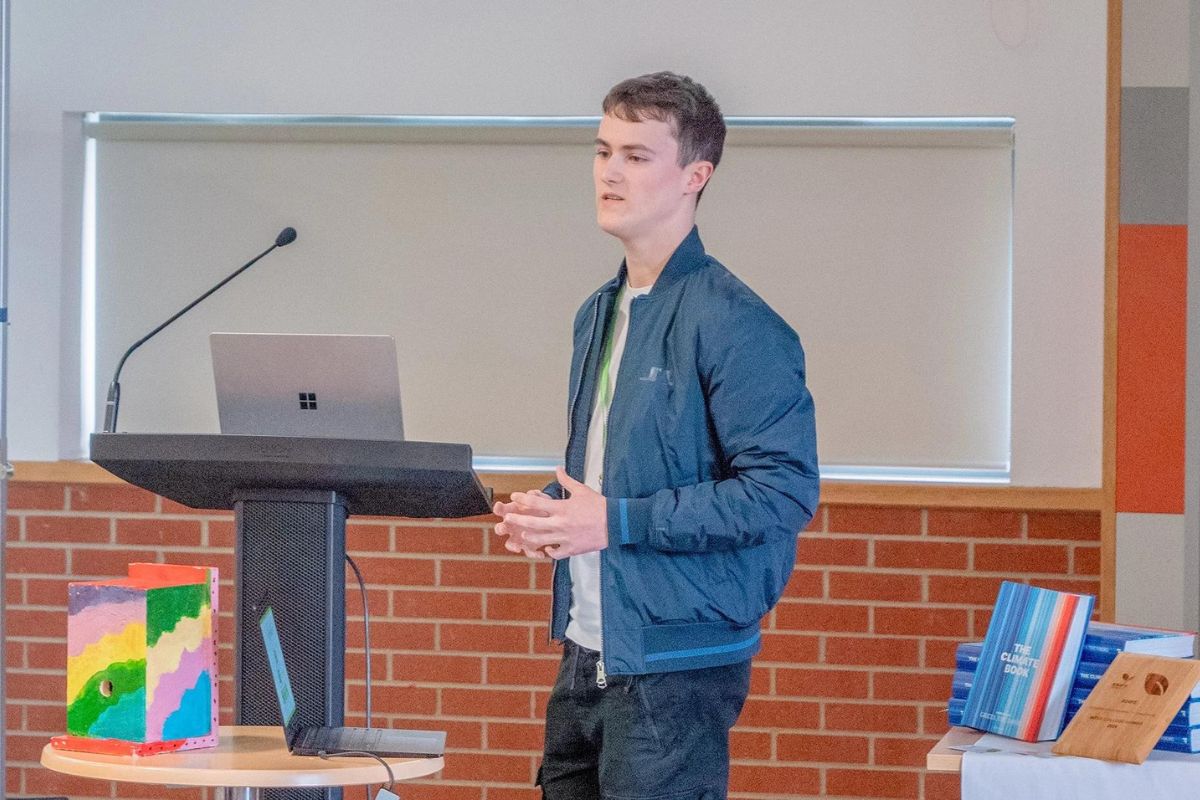Is data the driving force for better insights in 2024?

A year ago, generative AI like ChatGPT was barely on our radar. Today, the technology has moved into the mainstream. Universities are now trying to deal with the developments in terms of how it will impact workflows, job roles and education itself.
To understand the implications of AI on the access and use of content as well how institutions can use data more broadly, I spoke to industry peers to better understand what’s on the agenda in the year ahead for academia.
Data use is a ‘wicked problem’
While generative AI has taken the whole world by storm, within UK higher education it’s been the year of TEF. For Neil Bangs, Associate Professor in Education, Academic Lead for Teaching & Learning (Academic Advising) at Middlesex University and current Chair of UKAT, the TEF has brought with it a realisation that the way in which universities use data and analytics is ‘developing’ and will further evolve over time.
Neil says:
“In a sector that actively engages in research using both qualitative and quantitative data, there is room for improvement in systematically translating this valuable data into practical applications that genuinely benefit our students.”
Ed Foster, Head of Student Engagement and Analytics, Nottingham Trent University, echoes these thoughts, describing the challenge facing universities seeking to deliver equality of opportunity for all student groups as a ‘genuinely wicked problem.’
Ed recognises that while the sector wants data to inform their decision making, it’s not yet sophisticated at making decisions based on that data. “While data can be good at helping to identify problems, any response to that problem needs to recognise that there is often a multiplicity of root causes at play and that it would be wrong to assume that the root cause itself is student-based. The need for a deep level of understanding around the subtleties associated with these factors must therefore inform any work to meaningfully and sustainably remediate the fruit of these problems at scale. Responding to new insights potentially requires significant investment in staff development for all frontline staff supporting and teaching students,” he says.
The perennial ‘what works?’ question
Alison Mullan, Interim Director of Students, Education and Academic Services, Lancaster University, believes that universities will continue to grapple with the tension between harnessing the benefits of the digital world for students and the challenges and fears that it brings in terms of how to manage it. She hopes that data analytics will enable increased personalisation in the spheres of neurodiversity and inclusion through the provision of personalised opportunities for engagement and the balancing of different factors at the individual level which, if done in the right way, could bring significant value.
Neil Bangs agrees:
“We need to understand data and how to use it to support widening participation students, to remove barriers to learning and enable student success. Management-level insights from engagement data will help to provide a big picture overview which, when broken down by group, background and other factors will help with addressing the perennial ‘what works?’ question.”
As a provider of educational technologies to universities, James Gray, CEO at Kortext, believes that we will see more university strategies focusing on how to partner better to collect, augment and use data to inform as well as help improve specific outcomes – both for the university itself as well as for individual students. Working in partnership, as opposed to internal ‘self-build’ projects, has the potential to accelerate this strategic imperative and reduce risk while providing flexibility and optionality but remain focused on specific outcomes – especially in the context of, say TEF, and being able to drive improved student experience and evidence this.
James’ thinking aligns with that of Neil Bangs at Middlesex. As both a subject academic and as institutional lead for Academic Advising, Neil believes that one thing we will see over the coming year is a focus on ways to improve the collection, display and use of data for staff “so that academics with busy schedules can use it systematically as part of their everyday practice and can see the worth of it”. The challenge, he says, is to “combine academic intelligence with learning analytics and linking your support systems and professional services to triangulate the insights and make really useful assumptions about where students are at and how to support them to be the best they can be.”
One of the ongoing challenges in Neil’s view is how to win the battle around hearts and minds – how to bring all academics into this world of analytics and AI in a way where they can realise the potential it can bring and to embrace, albeit cautiously, the impact on their pedagogic practice. Whether there is a way to use analytics together with academic intelligence to reduce some of the daily workload for academic colleagues on those aspects of the job that need to be done, but which aren’t valued as highly as teaching or research activity.
Let the data sing
Like James Gray, Neil Bangs is also of the opinion that universities will become more skilled at preparing for the next round of TEF submissions. The next iteration of the TEF, due in 2027, provides a four-year opportunity in which to develop the kinds of partnerships that will improve student outcomes, enhance the student experience, and demonstrate a return on investment. As an academic in the London Institute of Sport at Middlesex, it isn’t surprising that Neil links preparing for the TEF to the way in which athletes prepare to win gold medals. In his view, universities will develop strategies for understanding their data, telling their contextual story, and then letting the data sing. The result? Increased value and emphasis on what the data is ‘saying’ and using independent analytics consultants to support the unpicking of stories behind the evidence.
The links back to understanding the reasons for student (dis)-engagement are clear. Poor data in one area doesn’t always have a direct causal root. Rather, there is a network of roots that point again to the need for an increasingly joined-up approach to how a student experiences life whilst a student. This is more than teaching, learning and assessment as it comprises every aspect of a student’s life. In this regard, this is where data could be capable of identifying pinch-points in service demand and delivery, surface where the risks to successful student outcomes lie and enable support departments to anticipate and pre-empt support needs within differing contexts.
Evaluating the impact of outreach and support activity will likely be high on agendas over this year as institutions look to make better use of their data as part of an ongoing, continual improvement approach to support the end-to-end vision of successful student outcomes. Reflecting on progress against key performance metrics or other targets, alongside having solid evidence to support future initiatives or bring an element of agility to existing ones are certainly ways the sector can make better use of their data in 2024.
Dr Rachel Maxwell is Principal Advisor (Academic, Research and Consultancy), at Solutionpath.












Responses